When Patrick Rafter was just 12 years of age, he bought himself a €10,500 violin.
“Mam and dad, they were like, ‘This is of your own accord!’” he smiles, “I just started busking one summer and in the space of a couple of months, I’d bought a 10 grand fiddle from the streets of Kilkenny.”
(When I was 12, I was doing well if I bought by own copy of Smash Hits magazine, I think to myself.)
But it’s just one story that gives an insight into the drive that has made Patrick one of Ireland’s leading classical violinists and conductors, having played alongside the greatest performers in the world- these days, on an 1840 Jean Baptiste Vuillaume instrument- and rubbed shoulders with the likes of Elton John along the way. But we’ll get back to that later.
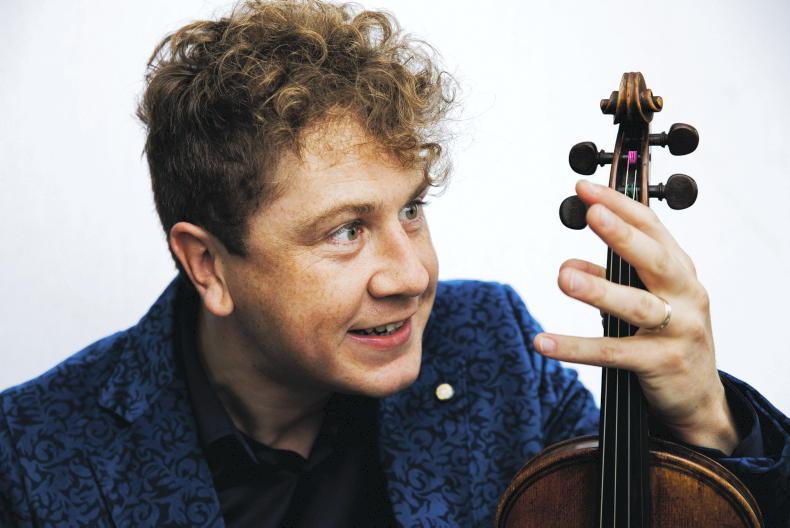
Patrick Rafter bought a €10,500 violin when he was 12 from busking. \ Philip Doyle
Today, we’re chatting on Zoom; but the truth is that Irish Country Living actually met Patrick back in 2009, when we visited his family’s farm in Threecastles, Co Kilkenny. Here, his father Paddy balanced breeding and training racehorses, hunters and showjumpers, tillage and sheep-farming with opera singing- at one stage, working with Placido Domingo- while his mother Maura taught piano and ran the Kilkenny Academy of Music from home.
Little surprise then that music was in Patrick’s blood- at that time, the then 18-year-old had just won the National Concert Hall’s young musician award- but he explains that he had set his sights on his career well before that, after seeing spike-haired violinist Nigel Kennedy on TV.
“I was maybe six or seven, and I remember being enraptured by this guy on stage with an Aston Villa t-shirt in front of a fancy orchestra with a cool haircut and playing stuff that made everyone laugh and really brought a lot of joy and you could see he was just having a ball on stage,” he recalls.

Today, Patrick plays on an 1840 Jean Baptiste Vuillaume violin. \ Philip Doyle
“And to me, it was everything. That’s what I wanted to do, right from then.”
But, we want to know, what makes a child prodigy? Is it a God-given gift, endless hours of practice; or something that you just can’t put your finger on?
Patrick reflects on the question.
“I think from day one there was a huge passion. I’m not saying other children aren’t passionate, but I just adored it. I really loved it and I felt that I had an innate talent and I knew that from an early age, that I could feel this music extremely powerfully,” he responds.
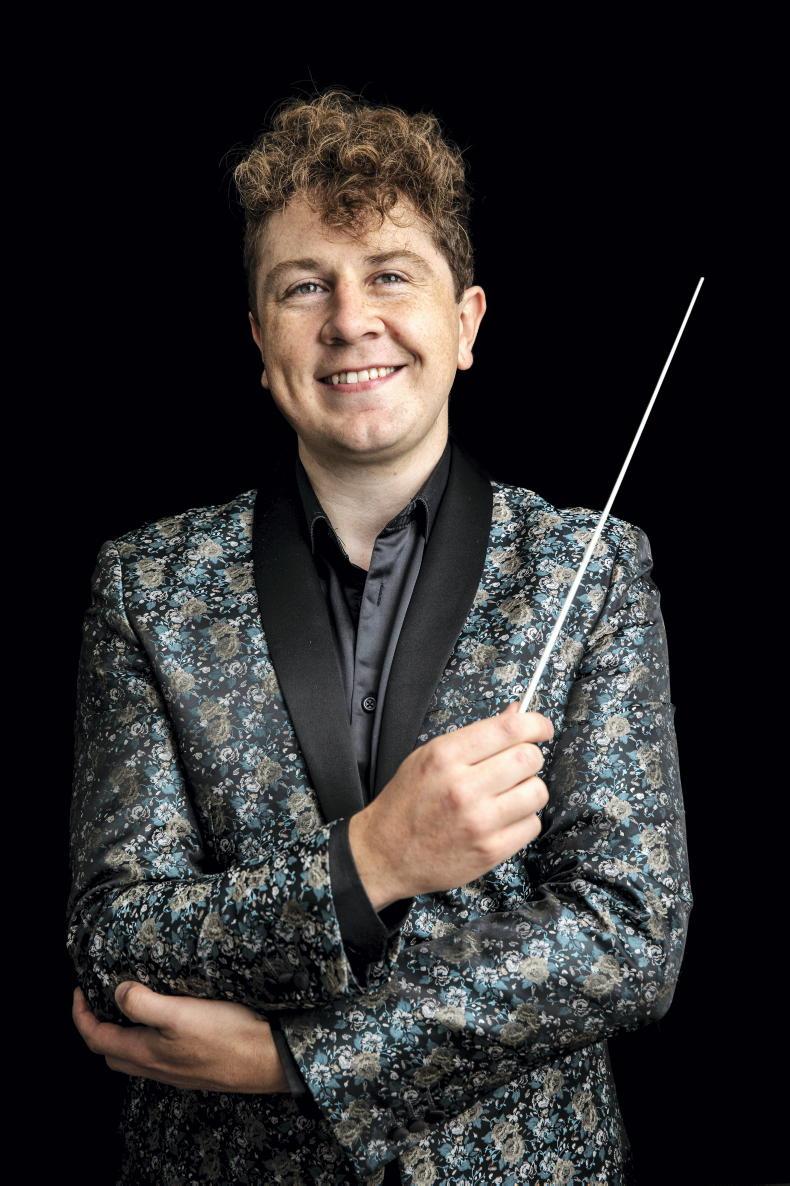
Violinist Patrick Rafter trained as a conductor during lockdown. \ Philip Doyle
“I remember playing on the streets of Kilkenny and playing Schindler’s List or something and I remember people breaking down crying in front of me saying that’s the most beautiful thing they’d ever heard and I felt that ability to communicate.
“Although I never liked to practice very hard when I was a child, I always loved it.”
International acclaim
Winning a series of competitions from local to international level opened doors for Patrick and after finishing school, he was awarded a scholarship to study at the Royal Academy of Music in London, where former alumni like Elton John often dropped in.
“He was actually a very chilled dude and never took himself so seriously,” says Patrick. “He’d chat away to students, which was nice as a little 18-year-old, 19-year-old, meeting this star figure.”
It was at the academy where Patrick also encountered Maxim Vengerov; who- he helpfully explains for me - is pretty much “the Ronaldo of violin”.
“In the classical world, he’s arguably the greatest fiddle player alive,” says Patrick, explaining that after playing a masterclass for Vengerov, he personally invited him to study with him in Switzerland: an “extremely demanding” but formative experience.
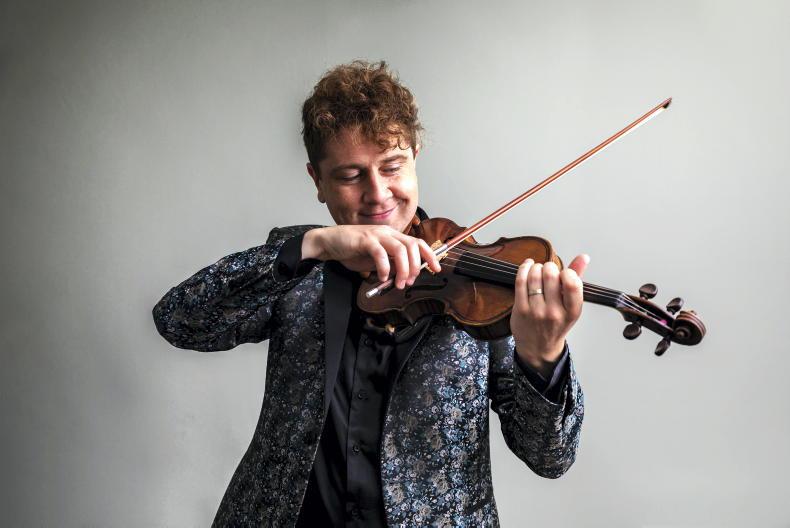
Violinist Patrick Rafter is one of Ireland's leading classical musicians. \ Philip Doyle
“I felt he felt that I had it in me to achieve and to succeed and I knew that him pushing me was because he felt he needed to push me to get it out of me,” says Patrick.
“But I think in many ways it was the making of me because performing under him, when you go to perform under anybody else, it feels easy then as a result.”
Indeed, Vengerov would later invite Patrick to perform with him as a soloist in 2019 with the RTÉ National Symphony Orchestra, but his CV makes for a head-spinning read; with performances with orchestras and ensembles including Prague Philharmonia, Mannheim Soloists, Kiev Soloists and Camerata Ireland, in prestigious venues like the Royal Albert Hall London, Berlin Konzerthaus, Concertgebouw Amsterdam and Seoul Arts Centre in Korea.
Another string to his bow
2020 was set to be “an insane year”, until, well, you can probably guess.
“It was soul destroying!” exclaims Patrick of the impact of COVID-19 on the music industry; but he decided to use the time to develop his skill as a conductor; another string to his bow, if you will.
“I made the decision that I would try to use the time to my advantage and try to find opportunity in the face of adversity.”
But how, we wonder, do you practice conducting in isolation; do you not need an orchestra in front of you, to wave at and stuff? Or is that a stupid question?
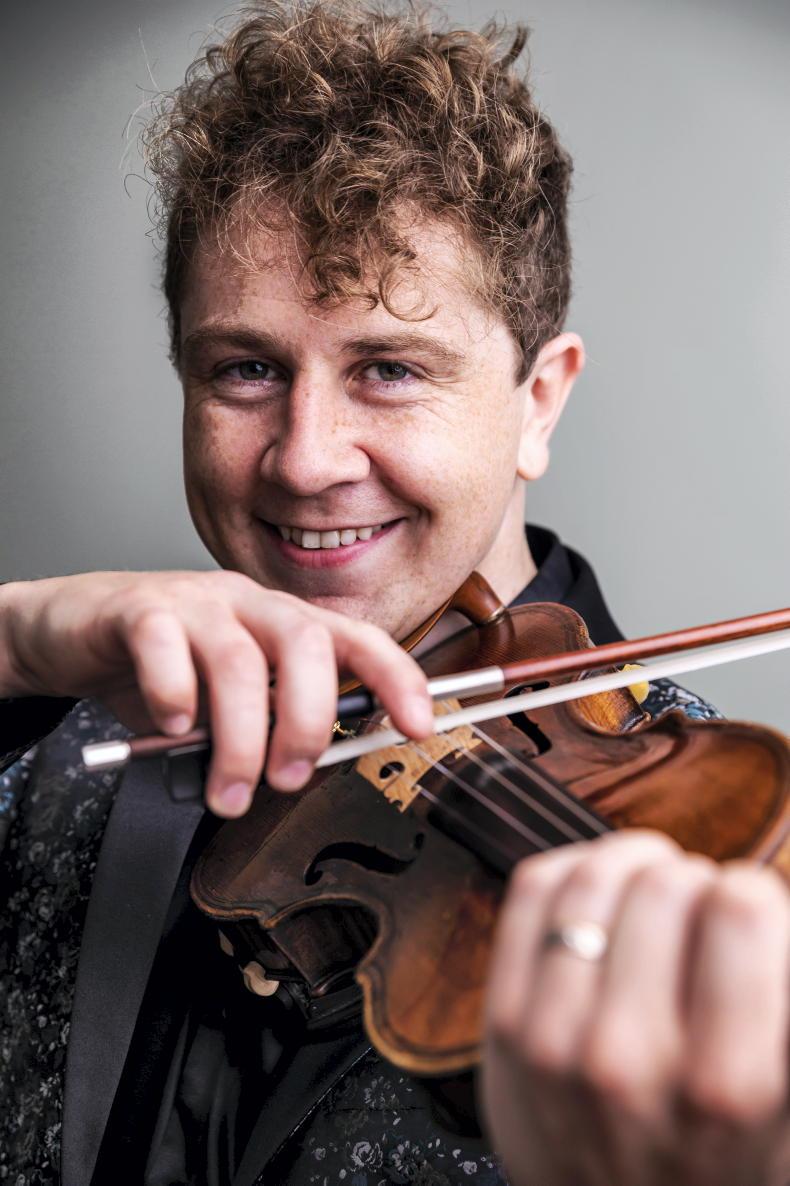
Violinist Patrick Rafter grew up on a farm in Co Kilkenny. \ Philip Doyle
“It’s a brilliant question,” responds Patrick; ever the gentleman.
“So conducting, you don’t practice the movements because the gestures come as a response to what you want the music to be, so you need to know the music brilliantly. So I look at this score here,” he lifts a page of sheet music in front of the laptop camera to illustrate his point, “each of those lines horizontally represents a different instrument in the orchestra and trying to figure out what 70 people are doing simultaneously in the space of three seconds and being able to cue people at the right time and knowing exactly what timbre, what dynamic they’re meant to come in at and things like this, is quite a challenge.”
A challenge that Patrick is obviously meeting, considering that earlier this year he won the Feis Ceoil conducting competition with the RTÉ concert orchestra, with further debuts in 2022 with Prague Philharmonia and Moravian Philharmonic amongst others.
Needless to say, in his game, no two days are the same.
“Like, last week was quite intense,” he gives as an example. “It was several hours of violin every day and several hours of conducting study every day, and several hours of administration work… and several hours could be five hours of violin.”
Work life balance
Keeping physically and mentally fit is also important as a professional musician; as is limiting any risks of injury. Growing up, Patrick played on Kilkenny development hurling squads and was a keen horseman, but after an awkward fall in a football tournament a few years ago, he had to re-think things.
“I ended up getting a pain in my arm throughout the day, which became a throbbing, agonising pain throughout the night, which led to a damaged scaphoid bone, a badly torn tendon and damaged nerves as well going up my left arm; all from a simple fall,” says Patrick.
“And it led to three months of physiotherapy three or four times a week and it was from there that I learned I can’t afford that because it’s not only that, it’s the whole mental thing of pulling yourself out of that and trying to get back in shape and when you’re off performing, it’s very hard to get back to it and you doubt yourself and what happens if it comes back.
“So yes, as a general rule, I’m careful, but I do draw a line, you can’t be too careful, you have to be willing to live life.”
Last year, Patrick married his wife Charlotte- a talented cellist herself, who he met at 18 through the National Youth Orchestra of Ireland- and divides his time between Dublin and Switzerland. That said, there are regular trips home to the farm in Threecastles.
“I do get caught for work; but I don’t mind!” he laughs.
It’s pretty clear that Patrick does not take himself too seriously. When I ask him what he is listening to most recently on Spotify, for example, he name checks Queen and Leonard Cohen alongside Mozart and Haydn. Indeed, he wants to banish any misconceptions of snobbery around classical music, which he believes is for everybody.
“There’s that misconception that you need to understand it. To know your Brahms from your Beethoven… that’s bull!” he says.
“Back in the 18th century, Bach would have been your Ed Sheeran of today: it was music for everybody.”
And despite his success, Patrick Rafter has not changed much from that 12-year-old busking on the streets of Kilkenny.
“At the end of the day, I think it’s the music that touches people,” he smiles.
For further information and upcoming performances, visit https://patrickrafter.com
When Patrick Rafter was just 12 years of age, he bought himself a €10,500 violin.
“Mam and dad, they were like, ‘This is of your own accord!’” he smiles, “I just started busking one summer and in the space of a couple of months, I’d bought a 10 grand fiddle from the streets of Kilkenny.”
(When I was 12, I was doing well if I bought by own copy of Smash Hits magazine, I think to myself.)
But it’s just one story that gives an insight into the drive that has made Patrick one of Ireland’s leading classical violinists and conductors, having played alongside the greatest performers in the world- these days, on an 1840 Jean Baptiste Vuillaume instrument- and rubbed shoulders with the likes of Elton John along the way. But we’ll get back to that later.

Patrick Rafter bought a €10,500 violin when he was 12 from busking. \ Philip Doyle
Today, we’re chatting on Zoom; but the truth is that Irish Country Living actually met Patrick back in 2009, when we visited his family’s farm in Threecastles, Co Kilkenny. Here, his father Paddy balanced breeding and training racehorses, hunters and showjumpers, tillage and sheep-farming with opera singing- at one stage, working with Placido Domingo- while his mother Maura taught piano and ran the Kilkenny Academy of Music from home.
Little surprise then that music was in Patrick’s blood- at that time, the then 18-year-old had just won the National Concert Hall’s young musician award- but he explains that he had set his sights on his career well before that, after seeing spike-haired violinist Nigel Kennedy on TV.
“I was maybe six or seven, and I remember being enraptured by this guy on stage with an Aston Villa t-shirt in front of a fancy orchestra with a cool haircut and playing stuff that made everyone laugh and really brought a lot of joy and you could see he was just having a ball on stage,” he recalls.

Today, Patrick plays on an 1840 Jean Baptiste Vuillaume violin. \ Philip Doyle
“And to me, it was everything. That’s what I wanted to do, right from then.”
But, we want to know, what makes a child prodigy? Is it a God-given gift, endless hours of practice; or something that you just can’t put your finger on?
Patrick reflects on the question.
“I think from day one there was a huge passion. I’m not saying other children aren’t passionate, but I just adored it. I really loved it and I felt that I had an innate talent and I knew that from an early age, that I could feel this music extremely powerfully,” he responds.

Violinist Patrick Rafter trained as a conductor during lockdown. \ Philip Doyle
“I remember playing on the streets of Kilkenny and playing Schindler’s List or something and I remember people breaking down crying in front of me saying that’s the most beautiful thing they’d ever heard and I felt that ability to communicate.
“Although I never liked to practice very hard when I was a child, I always loved it.”
International acclaim
Winning a series of competitions from local to international level opened doors for Patrick and after finishing school, he was awarded a scholarship to study at the Royal Academy of Music in London, where former alumni like Elton John often dropped in.
“He was actually a very chilled dude and never took himself so seriously,” says Patrick. “He’d chat away to students, which was nice as a little 18-year-old, 19-year-old, meeting this star figure.”
It was at the academy where Patrick also encountered Maxim Vengerov; who- he helpfully explains for me - is pretty much “the Ronaldo of violin”.
“In the classical world, he’s arguably the greatest fiddle player alive,” says Patrick, explaining that after playing a masterclass for Vengerov, he personally invited him to study with him in Switzerland: an “extremely demanding” but formative experience.

Violinist Patrick Rafter is one of Ireland's leading classical musicians. \ Philip Doyle
“I felt he felt that I had it in me to achieve and to succeed and I knew that him pushing me was because he felt he needed to push me to get it out of me,” says Patrick.
“But I think in many ways it was the making of me because performing under him, when you go to perform under anybody else, it feels easy then as a result.”
Indeed, Vengerov would later invite Patrick to perform with him as a soloist in 2019 with the RTÉ National Symphony Orchestra, but his CV makes for a head-spinning read; with performances with orchestras and ensembles including Prague Philharmonia, Mannheim Soloists, Kiev Soloists and Camerata Ireland, in prestigious venues like the Royal Albert Hall London, Berlin Konzerthaus, Concertgebouw Amsterdam and Seoul Arts Centre in Korea.
Another string to his bow
2020 was set to be “an insane year”, until, well, you can probably guess.
“It was soul destroying!” exclaims Patrick of the impact of COVID-19 on the music industry; but he decided to use the time to develop his skill as a conductor; another string to his bow, if you will.
“I made the decision that I would try to use the time to my advantage and try to find opportunity in the face of adversity.”
But how, we wonder, do you practice conducting in isolation; do you not need an orchestra in front of you, to wave at and stuff? Or is that a stupid question?

Violinist Patrick Rafter grew up on a farm in Co Kilkenny. \ Philip Doyle
“It’s a brilliant question,” responds Patrick; ever the gentleman.
“So conducting, you don’t practice the movements because the gestures come as a response to what you want the music to be, so you need to know the music brilliantly. So I look at this score here,” he lifts a page of sheet music in front of the laptop camera to illustrate his point, “each of those lines horizontally represents a different instrument in the orchestra and trying to figure out what 70 people are doing simultaneously in the space of three seconds and being able to cue people at the right time and knowing exactly what timbre, what dynamic they’re meant to come in at and things like this, is quite a challenge.”
A challenge that Patrick is obviously meeting, considering that earlier this year he won the Feis Ceoil conducting competition with the RTÉ concert orchestra, with further debuts in 2022 with Prague Philharmonia and Moravian Philharmonic amongst others.
Needless to say, in his game, no two days are the same.
“Like, last week was quite intense,” he gives as an example. “It was several hours of violin every day and several hours of conducting study every day, and several hours of administration work… and several hours could be five hours of violin.”
Work life balance
Keeping physically and mentally fit is also important as a professional musician; as is limiting any risks of injury. Growing up, Patrick played on Kilkenny development hurling squads and was a keen horseman, but after an awkward fall in a football tournament a few years ago, he had to re-think things.
“I ended up getting a pain in my arm throughout the day, which became a throbbing, agonising pain throughout the night, which led to a damaged scaphoid bone, a badly torn tendon and damaged nerves as well going up my left arm; all from a simple fall,” says Patrick.
“And it led to three months of physiotherapy three or four times a week and it was from there that I learned I can’t afford that because it’s not only that, it’s the whole mental thing of pulling yourself out of that and trying to get back in shape and when you’re off performing, it’s very hard to get back to it and you doubt yourself and what happens if it comes back.
“So yes, as a general rule, I’m careful, but I do draw a line, you can’t be too careful, you have to be willing to live life.”
Last year, Patrick married his wife Charlotte- a talented cellist herself, who he met at 18 through the National Youth Orchestra of Ireland- and divides his time between Dublin and Switzerland. That said, there are regular trips home to the farm in Threecastles.
“I do get caught for work; but I don’t mind!” he laughs.
It’s pretty clear that Patrick does not take himself too seriously. When I ask him what he is listening to most recently on Spotify, for example, he name checks Queen and Leonard Cohen alongside Mozart and Haydn. Indeed, he wants to banish any misconceptions of snobbery around classical music, which he believes is for everybody.
“There’s that misconception that you need to understand it. To know your Brahms from your Beethoven… that’s bull!” he says.
“Back in the 18th century, Bach would have been your Ed Sheeran of today: it was music for everybody.”
And despite his success, Patrick Rafter has not changed much from that 12-year-old busking on the streets of Kilkenny.
“At the end of the day, I think it’s the music that touches people,” he smiles.
For further information and upcoming performances, visit https://patrickrafter.com






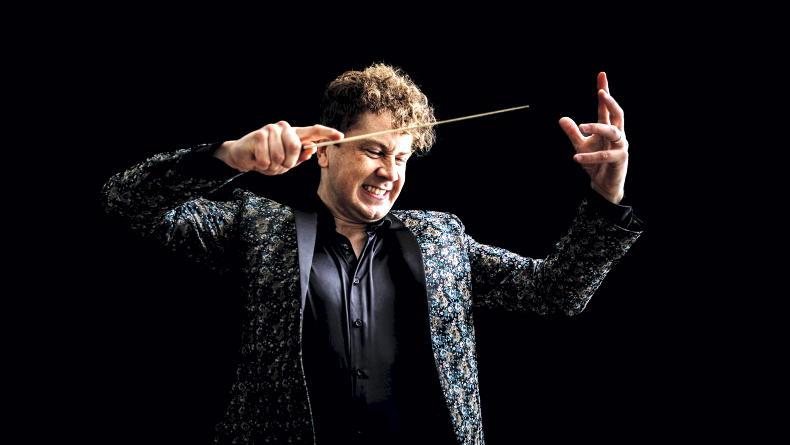




 This is a subscriber-only article
This is a subscriber-only article










SHARING OPTIONS: